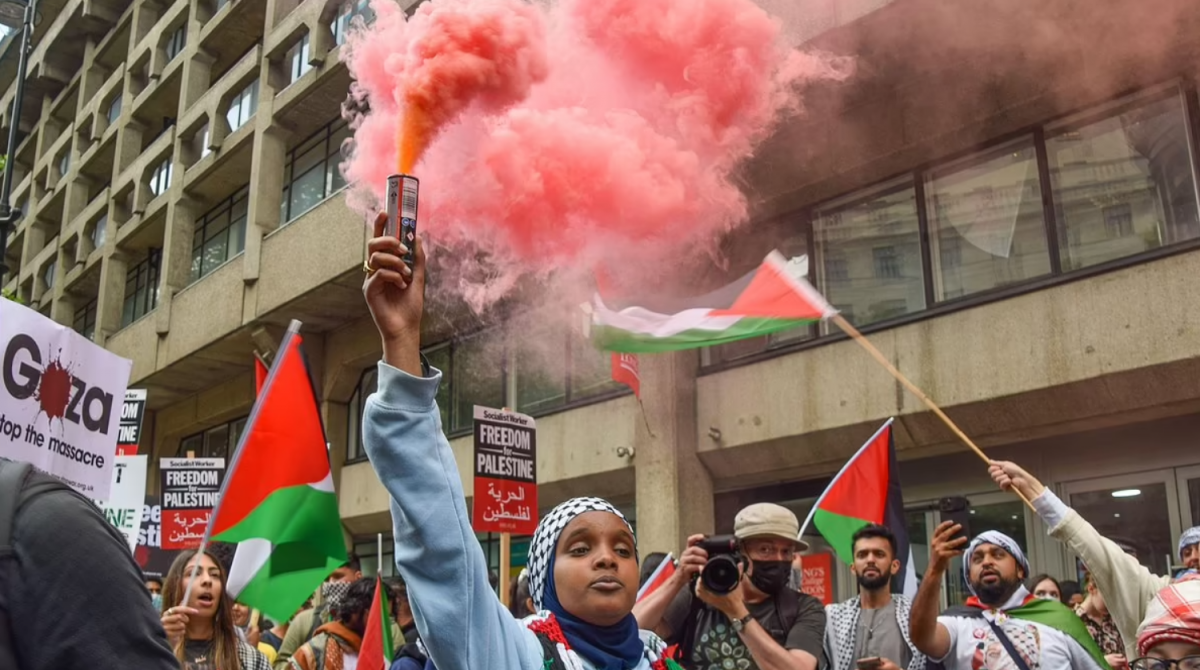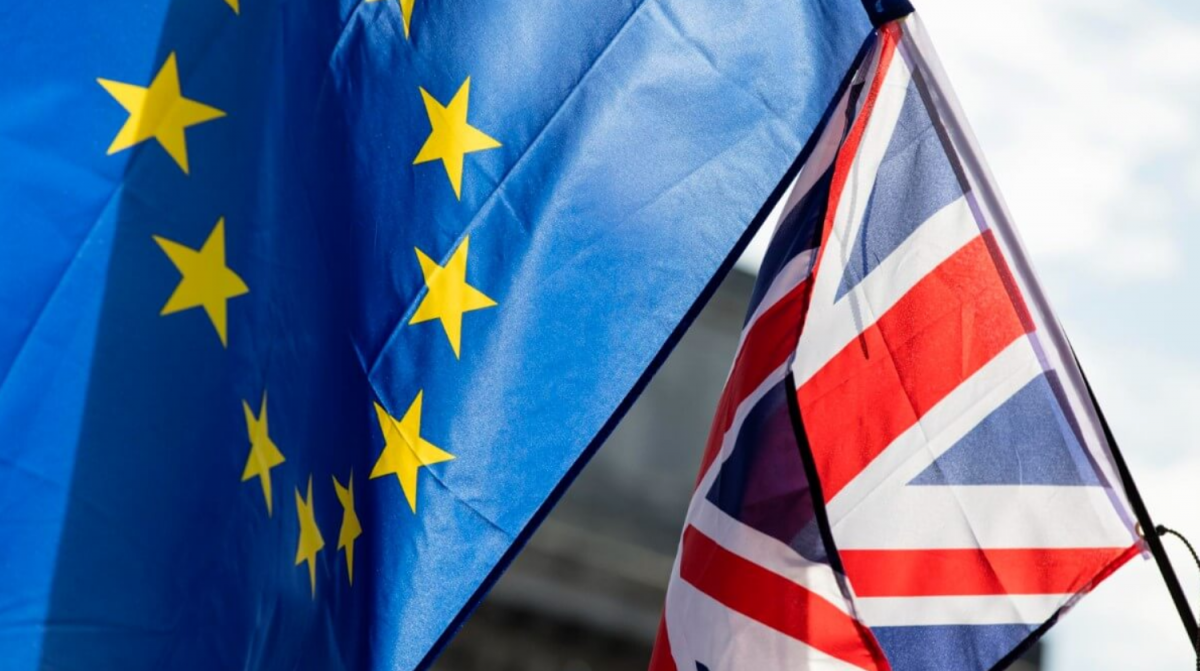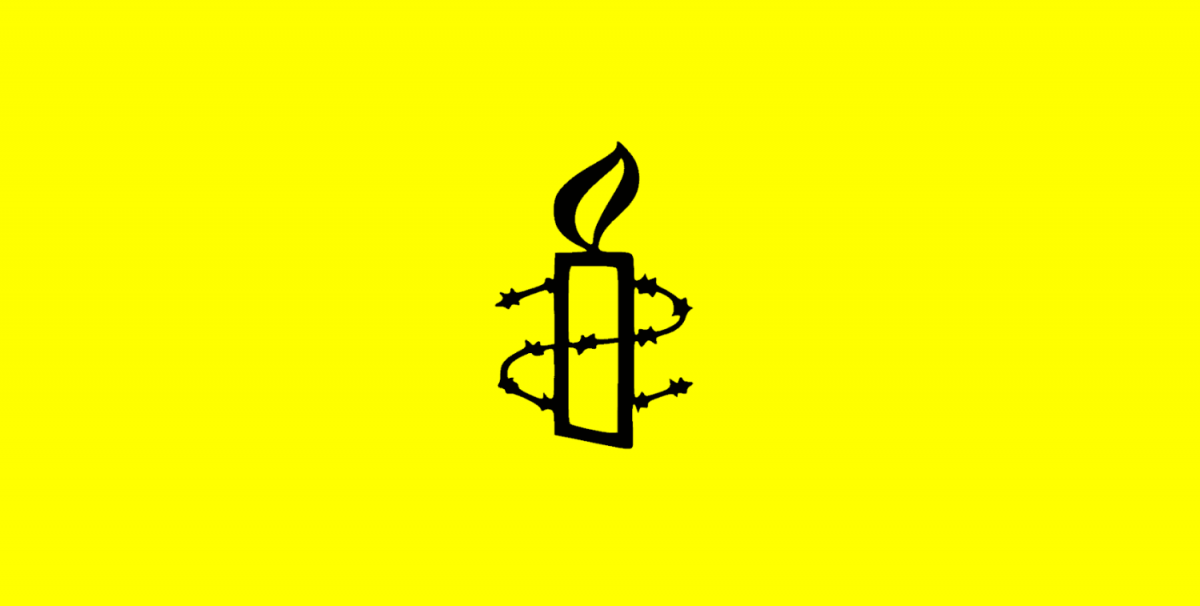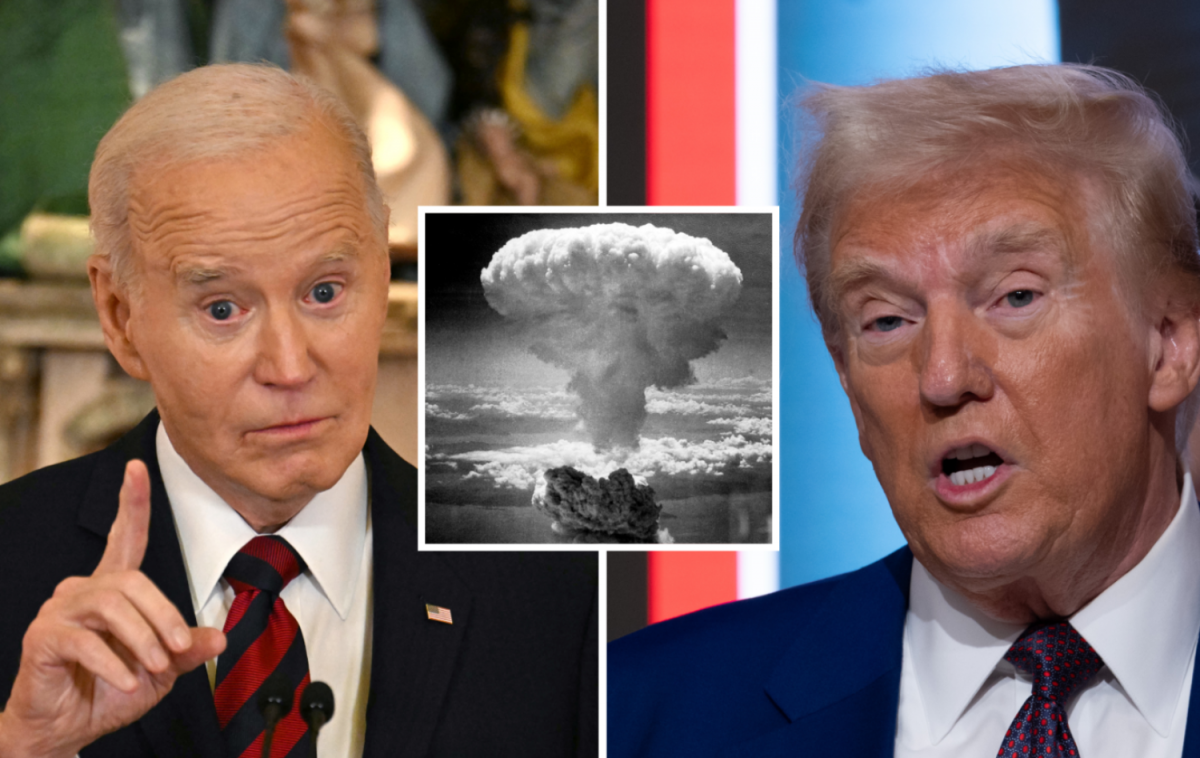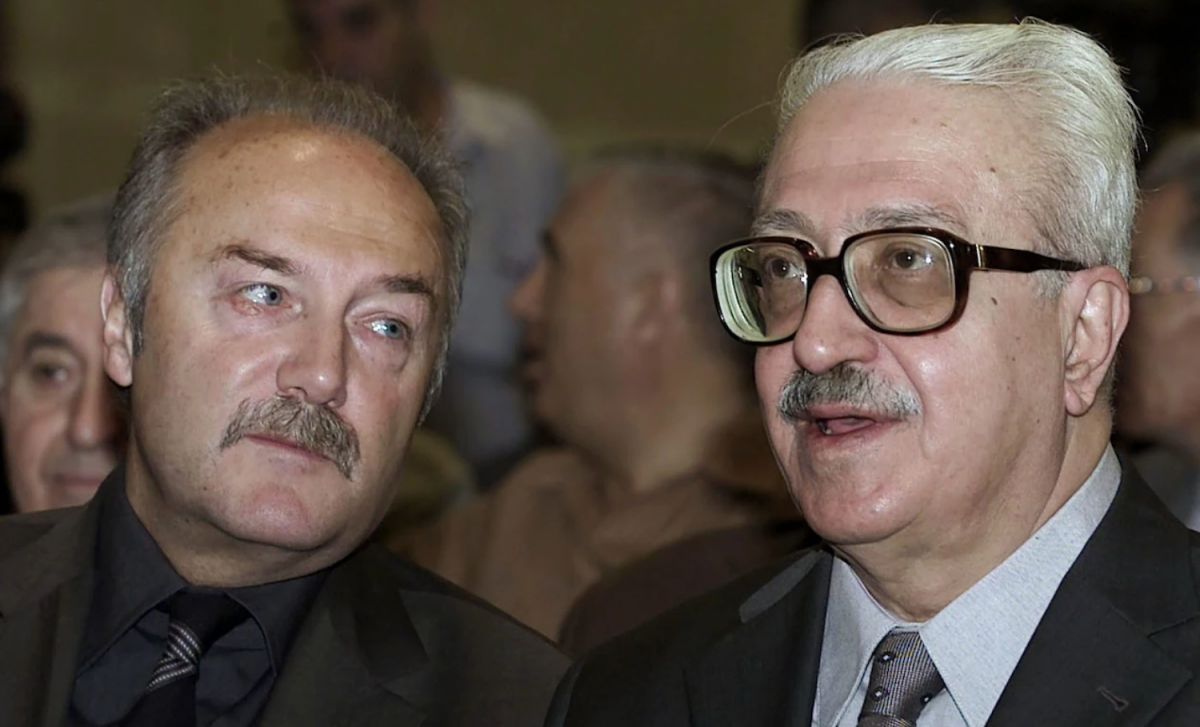-
Posts
10,767 -
Joined
-
Last visited
Content Type
Events
Forums
Downloads
Quizzes
Gallery
Blogs
Everything posted by Social Media
-
Victoria Thomas Bowen, a 25-year-old OnlyFans model, narrowly escaped jail after throwing a milkshake at Nigel Farage during his general election campaign in Clacton-on-Sea. The incident occurred on June 4 outside the Moon and Starfish Wetherspoon pub in Essex, where the Reform UK MP, aged 60, was campaigning. In a victim impact statement, Farage expressed his humiliation over the incident, which was widely broadcast on national and international media. He described feeling deeply unsettled, noting, "I was thoughtful for some time afterwards that next time it may not be a milkshake." He also highlighted growing concerns over his security, adding, "I'm saddened that this has happened at a public campaign." Despite the disruption, Farage went on to secure the Clacton-on-Sea seat, unseating Conservative incumbent Giles Watling. Bowen’s actions may have drawn media attention, but they also underscored the tensions surrounding political campaigns and public discourse in the UK. Based on a report by Sky News 2024-12-17
-
King’s College London has come under fire for allegedly “defending hatred” after dismissing a complaint against a professor accused of sharing Hamas propaganda during a seminar. The controversy centers on Dr. Rana Baker, a lecturer specializing in the history of the Middle East, who assigned her students reading material from Hamas’s media office, titled *Our Narrative: Operation Al-Aqsa Flood*. The 18-page document refers to the October 7 massacre as a “necessary step” and a “normal response” to Israel’s actions. King's College London professor urged students to view Hamas as a 'liberation group'. The investigation by the university concluded that Dr. Baker had committed “no wrongdoing.” However, critics have raised concerns about the professor’s framing of Hamas, a group widely recognized as a terrorist organization. In the seminar, Dr. Baker encouraged students to view Hamas as “an Islamic national liberation resistance movement” that targets “Zionists, not Jews.” She further posed the question: “What do we make of it [the reading] given that Hamas is recognized as a terrorist organization by all the major powers?” The controversy escalated when a Jewish student secretly recorded the seminar and later lodged a formal complaint. The student claimed to have felt deeply disturbed by the content of the lecture, saying, “By the end of this seminar I was visibly shaking.” The recording revealed that Dr. Baker also discussed the Holocaust, stating it was used to justify the creation of an “exclusive Jewish state.” She asserted: “The deployment of the Holocaust as a justification to build an exclusive Jewish state … if you look at the IHRA [International Holocaust Remembrance Alliance] definition of anti-Semitism, it does say criticizing Israel can amount to anti-Semitism.” The student who reported the incident faced significant resistance from the university. Emails revealed that investigators urged him to delete the audio recording, citing it as a breach of university regulations since consent was not obtained from those present. The university warned him of a possible misconduct investigation, stating they could not “accept your recording as evidence.” The initial dismissal of the complaint prompted widespread criticism. However, the case was reopened in July and is now under review by an external third party. Lord Ian Austin weighed in on the controversy, urging the university to adopt a “zero tolerance approach to people who support terrorism and stop defending hatred.” Conservative justice spokesman Robert Jenrick echoed the sentiment, describing the incident as evidence of the widespread nature of anti-Semitism in UK universities. He called for the Education Secretary’s intervention to “restore some sanity.” The Union of Jewish Students also condemned the university’s handling of the complaint, accusing it of “a lack of action and negligence.” In a related development, the *Daily Mail* unearthed tweets allegedly linked to Dr. Baker that advocated for the destruction of Israel. These tweets, published under the handle @RanaGaza, were reportedly connected to her profiles as a writer for *The Guardian* and *Al-Monitor*. Both King’s College London and law enforcement have been notified about the tweets. A university spokesperson defended the handling of the case, stating, “This individual complaint is following the same practice as we follow for any complaint, in line with our robust policies and procedures.” Meanwhile, the Department for Education reiterated that “no Jewish student should feel unsafe at any time, let alone in education.” Based on a report by Daily Mail 2024-12-17
-
The European Commission has initiated legal action against the United Kingdom, accusing it of violating the terms of the Brexit agreement. This marks the first significant clash between Brussels and London since Keir Starmer's government took office. At the heart of the dispute is Britain’s alleged failure to uphold EU law concerning the free movement of people. Under the Brexit deal, finalized when the UK officially left the European Union in early 2020, both sides agreed to protect the rights of citizens who had already settled across their respective borders. This meant European nationals and their families living in the UK were to retain their rights to reside, work, and study, while British nationals would have equivalent rights within EU member states. However, the European Commission contends that Britain has not fully complied with these provisions, and has taken the matter to the Court of Justice of the European Union (ECJ). Although Brexit formally ended the UK's obligation to adhere to EU law, certain aspects of the withdrawal agreement remain under the jurisdiction of the ECJ. This arrangement has been a contentious issue, particularly among pro-Brexit politicians in Britain, who view the continued influence of the European court as undermining UK sovereignty. In a strongly worded statement, the European Commission criticized the UK’s “shortcomings” in implementing the agreement, asserting that these failures continue to negatively impact EU citizens. "After carefully assessing the replies of the United Kingdom, the Commission maintains that several elements of the grievances remain unaddressed, including on the rights of workers and the rights of extended family members,” the statement read. The Commission emphasized that the violations in question occurred at the end of 2020, shortly after the transition period concluded. It noted that Britain’s actions, or lack thereof, have left unresolved issues that affect the lives of many EU nationals. As the legal dispute unfolds, it underscores the ongoing tensions and complexities in post-Brexit relations, with both sides striving to navigate the challenges of maintaining commitments while asserting their respective interests. Based on a report by Politico 2024-12-17
-
@Dan O I have just spent time removing numerous of your trolling emoji's from posts that were supplying relevant on topic discussion. You have been warned politely. Next time will be officially.
-

ABC News Settles Defamation Lawsuit with Trump for $15 Million
Social Media replied to Social Media's topic in World News
A personal flame removed @Will B Good Please discuss without the need for childish personal attacks -
A couple of posts removed. One about Trumps dismissed document case and one about 5,000 Taliban being released. The reason they were removed is because this topic happens to be about: Trump orders Hostages released Any more diversion posts on Bluesky or other unrelated topics will also be removed.
-
A new report suggests that casualty figures from the Gaza conflict have been significantly inflated, raising concerns over how data has been used to influence global perceptions of the war. According to researchers, the Hamas-run Gaza Ministry of Health has overstated the number of civilian deaths, allegedly including natural fatalities, misclassifying victims, and failing to differentiate between combatants and civilians. These inaccuracies, the report claims, are intended to portray Israel as deliberately targeting civilians. The analysis, conducted by the Henry Jackson Society, points to a series of statistical anomalies in the reported death toll. Official estimates from Gaza’s Ministry of Health claim that over 44,000 people have died since Israel began its military response to the Hamas attacks on October 7. However, the study argues that at least 17,000 of these deaths were Hamas fighters, citing Israeli and U.S. intelligence reports. It also highlights evidence of approximately 5,000 natural deaths being added to the casualty lists, including cancer patients who were later found still receiving treatment in hospitals. Other irregularities include adult victims being misclassified as children and male casualties being recorded as women. Researchers believe such misclassifications serve to inflate the perceived number of women and children killed, enhancing the narrative that civilians are disproportionately affected. Andrew Fox, the author of the report, stated, “This misclassification contributes to the narrative that civilian populations, particularly women and children, bear the brunt of the conflict, potentially influencing sentiment and media coverage.” The Henry Jackson Society also noted that casualty figures failed to distinguish between deaths caused by Israeli military actions and those resulting from misfired Hamas rockets or incidents during food aid distribution. The report criticizes international media outlets, including the BBC, The New York Times, and CNN, for uncritically repeating the figures provided by the Hamas-controlled Ministry of Health. This, it argues, has fostered a distorted narrative that frames Israel as engaging in “genocide” and “ethnic cleansing.” According to the researchers, such misreporting has shaped public opinion and international policymaking, with significant implications. The demographic analysis presented in the report paints a different picture from the official narrative. It reveals that the majority of fatalities are men aged 15-45, suggesting that a large proportion of the deceased are combatants rather than civilians. The data, however, is recorded through inconsistent and opaque methods, including hospital reports, family submissions via online forms, and media sources. The lack of verification, the report claims, allows for errors and deliberate manipulation. Priti Patel, the shadow foreign secretary, commented on the findings, saying, “The manipulation of events and facts on the ground throughout this conflict confirms that a terrorist organisation like Hamas will distort the truth to further their own aims. The media must be alert to this and report information and events taking place in a responsible and balanced way.” The report underscores the consequences of these alleged distortions, which extend beyond statistical inaccuracies. By presenting an exaggerated civilian death toll, the casualty figures amplify international criticism of Israel while obscuring the combatant status of many victims. This skewed narrative risks deepening public misunderstandings of the conflict and influencing international policies based on manipulated data. The findings call for greater scrutiny of casualty reporting in conflict zones and highlight the role of media in ensuring balanced and accurate coverage. Full report: https://henryjacksonsociety.org/wp-content/uploads/2024/12/HJS-Questionable-Counting-–-Hamas-Report-web.pdf Based on a report by Daily Telegraph 2024-12-16 Related Topics: Discrepancies in Gaza Casualty Figures: An Analysis of Hamas Data By Associated Press UN Cuts Death of Women and Children in Gaza by Half Hamas admits one-third of its data on Gazan deaths is ‘incomplete’ Scrutiny Over Gaza Death Toll Figures: UK Statistics Watchdog Investigates Hamas's Data How the Gaza Ministry of Health Fakes Casualty Numbers
-
A video circulating on social media shows former New York congressman George Santos being doused with a cup of coffee in Times Square, sparking widespread reactions online. The clip begins with an unnamed man, wearing sunglasses, speaking into the camera as he follows Santos, remarking, “This guy has got [the] audacity to show his face.” Moments later, the man confronts Santos, throws the drink at him, and asks, “How do you like that?” Santos responds angrily, shouting, “What the f*** is wrong with you?” Santos, who has been embroiled in scandals throughout his brief political career, became only the sixth member of Congress in U.S. history to be expelled from the House when he was removed in December 2023. His expulsion followed a series of accusations and criminal charges that culminated in him pleading guilty to aggravated identity theft and wire fraud in August. These charges included stealing credit card information for personal use and submitting false information to the Federal Election Commission. Prosecutors revealed that Santos had defrauded his victims of more than $300,000, which he has been ordered to repay. Once seen as a rising star in the Republican Party, Santos faced intense scrutiny for fabricating much of his personal and professional background. His career unraveled as investigations uncovered a pattern of deceit and financial misconduct. His expulsion placed him in a small and infamous group of lawmakers removed from Congress, the other five being Confederates expelled during the Civil War. The coffee-throwing incident is just the latest chapter in Santos’ tumultuous public life. While it has fueled conversations about political accountability and public conduct, it also highlights the dangers of escalating tensions in political discourse. Even those critical of Santos have called for restraint, emphasizing that disagreements should not devolve into personal assaults. Based on a report by The Independent 2024-12-16
-
Rarely has the disproportionate focus of certain activist organizations on Israel been as evident as it is today. Since the Syrian conflict erupted in 2011, over 500,000 people have lost their lives, with millions displaced as Islamist factions, Assad’s regime, and their Russian allies have left towns in ruins. Yet among many on the global left, the prevailing outrage seems directed not at the architects of this vast human tragedy but rather at Israel. One needs only to listen to their rhetoric: “Did you see what the IDF did in Khan Younis this week?” This singular focus is epitomized by Amnesty International’s recent report, *‘You Feel Like You Are Subhuman’: Israel’s Genocide Against Palestinians in Gaza*. Its publication coincided with Hama falling to a faction more extreme than al-Qaeda, yet Amnesty’s prioritization of Israel over Syria raises uncomfortable questions. Why is Israel’s war with Hamas labeled a “genocide” when other conflicts with far greater death tolls, like the Syrian war, escape such severe condemnation? Why is the Gaza conflict, with an alleged death toll of 44,000, branded a “modern-day holocaust,” while Syria’s half-million dead are discussed without invoking the same incendiary terms? Consider Yemen, where 400,000 people have perished, some through violence and others from famine, yet the word “genocide” remains conspicuously absent. In the Congo wars, millions died, but where were the Western protesters waving swastikas or branding their perpetrators as Nazis? It is difficult to escape the conclusion that terms like “genocide,” “Nazis,” and “Hitler” are disproportionately applied to Israel because their connotations are uniquely painful to the Jewish people. The actions of Amnesty UK earlier this year highlight this troubling pattern. In March, activists placed street signs reading “Genocide Avenue” outside the Israeli Embassy in London. Imagine how embassy staff—descendants of those who survived the Holocaust—felt seeing that term, a symbol of one of humanity’s darkest crimes, affixed outside their workplace. Notably, the Russian Embassy, mere blocks away, saw no such treatment, despite the atrocities in Ukraine. Amnesty reserves its most damning accusations for Israel alone. Even Amnesty’s language in its report betrays a certain unease. The organization criticizes the “narrow” definitions of genocide that exclude Israel’s actions and calls for broader interpretations that might encompass what it describes as Israel’s “genocidal” war. Yet this reveals a discomfort, a tacit acknowledgment that Israel is engaged in armed conflict—not genocide. Amnesty’s desire to stretch the definition of such a grave crime raises questions about its credibility and motives. This is not the first time Amnesty has taken aim at those defending themselves against oppressive forces. The organization has accused Kurdish fighters of “war crimes” during their battle against ISIS, condemned Ukrainians for “putting civilians in harm’s way” while resisting Russia’s aggression, and now criticizes Israel’s pursuit of Hamas, a group committed to its destruction. Amnesty’s tendency to scold those fighting against terror and tyranny often seems divorced from the grim realities of these struggles. Perhaps it is time for Amnesty International to reconsider its approach. Candlelit vigils and well-meaning reports are one thing, but relentless criticism of those battling extremist forces does little to support humanity’s progress. The people of Israel, Kurdistan, Ukraine, and beyond deserve better than to have their righteous struggles against oppression equated with the very evils they fight. Based on a report by The Spectator 2024-12-16
-
ABC News has agreed to a $15 million settlement with President-elect Donald Trump to resolve a defamation lawsuit stemming from false statements made by its prominent anchor, George Stephanopoulos. The case arose after Stephanopoulos repeatedly claimed during a March 10 interview that Trump had been found "liable for rape," a statement that was untrue. The controversy began when Stephanopoulos questioned South Carolina Republican congresswoman Nancy Mace about her endorsement of Trump. During the broadcast, he asserted, “judges and two separate juries have found him liable for rape,” repeating the claim a total of ten times throughout the segment. This led to swift legal action from Trump, who argued that the false statements were damaging to his reputation. As part of the settlement, ABC News will pay $15 million as a charitable contribution to establish a "Presidential foundation and museum" in Trump’s name. The settlement document states that the foundation will follow the tradition of similar institutions created by past U.S. Presidents. Additionally, the network agreed to cover $1 million of Trump’s legal fees incurred during the case. The dispute had escalated earlier this year when a federal magistrate judge ordered both Trump and Stephanopoulos to provide sworn depositions regarding the claims. However, the settlement has now precluded the need for further legal proceedings or testimony. Trump's legal challenges against media outlets are not new. In another ongoing case, he has sued CBS, alleging “deceptive conduct” in an interview with Vice President Kamala Harris. In previous years, courts dismissed his defamation lawsuits against CNN, the New York Times, and the Washington Post, where he claimed bias and misrepresentation. In one prominent instance in 2023, a judge rejected his case against CNN, which alleged the network had drawn comparisons between Trump and Adolf Hitler. The ABC News settlement, however, marks a significant outcome for Trump, whose legal battles with major media outlets often draw widespread attention. It also highlights the ongoing tension between the former president and prominent news organizations, which he frequently accuses of unfair treatment. The resolution of the case underscores the importance of accuracy in reporting, especially when discussing high-profile figures. For Trump, the settlement represents not only a legal victory but also an opportunity to establish a lasting legacy through the proposed Presidential foundation. For ABC News, it serves as a reminder of the potential consequences of broadcasting unverified or erroneous claims. Based on a report by BBC 2024-12-16
-
President Joe Biden faces mounting pressure from Democratic lawmakers to curb the president's unilateral authority over nuclear weapons—a move spurred by concerns about Donald Trump potentially regaining the presidency. On Thursday, Senator Ed Markey of Massachusetts and Representative Ted Lieu of California sent a letter urging Biden to overhaul the longstanding policy that grants the sitting president sole authority to authorize nuclear strikes. Currently, the U.S. policy, as outlined in a Congressional Research Service report from May, allows the president to independently order nuclear weapon use as part of their constitutional role as commander in chief. While the president may seek advice from military leaders, those leaders are obligated to carry out the orders once issued. In their letter, Markey and Lieu emphasized the urgency of revisiting this policy, calling it "dangerous." "As Donald Trump prepares to return to the Oval Office, it is more important than ever to take the power to start a nuclear war out of the hands of a single individual and ensure that Congress' constitutional role is respected and fulfilled," they wrote. The Democratic lawmakers proposed a significant shift: requiring congressional approval before a president can initiate a nuclear strike. They argued that such a change would serve as a critical safeguard against impulsive decisions, particularly in times of international tension. "We urge you to announce that henceforth it will be the policy of the United States that it will not initiate a nuclear first strike without express authorization from Congress," their letter stated. However, they acknowledged that in the event of a nuclear attack on the U.S., the president would retain the ability to respond unilaterally. Markey and Lieu framed this policy revision as an opportunity for Biden to solidify his presidential legacy. "Such a move could become an important part of your legacy," they wrote, appealing to the president's authority to enact a defining change. Concerns about Trump’s stance on nuclear weapons have persisted among Democrats since his first term in office. Trump has been vocal about his readiness to employ nuclear power, often invoking provocative rhetoric. In January 2018, he responded to a statement by North Korean leader Kim Jong Un by tweeting, "North Korean Leader Kim Jong Un just stated that the 'Nuclear Button is on his desk at all times.' Will someone from his depleted and food-starved regime please inform him that I too have a Nuclear Button, but it is a much bigger & more powerful one than his, and my Button works!" These concerns are not one-sided. Republicans and Trump himself have accused Biden and the Democrats of escalating nuclear tensions. During a campaign rally in Pennsylvania in September, Trump warned of imminent global conflict, stating, "We're heading into World War III territory, and because of the power of weapons, nuclear weapons in particular." As debate over nuclear authority intensifies, the stakes remain high. Neither the White House nor Trump’s team has yet commented on the Democratic lawmakers' proposals. However, as the U.S. approaches the 2024 presidential election, the issue is likely to remain a focal point in discussions about national security and executive power. Based on a report by Newsweek 2024-12-16
-
The United Kingdom has pledged an additional £13 million to the United Nations Relief and Works Agency (UNRWA), the main provider of aid to Palestinian refugees, despite allegations that some of its staff were involved in the October 7 attacks on Israel. This new funding supplements the £21 million already committed earlier this year, signaling a strong show of support for the agency despite its contentious status with Israel. The announcement followed a meeting between Prime Minister Sir Keir Starmer and UNRWA Commissioner-General Philippe Lazzarini on Wednesday. Downing Street stated that the funds would be used to bolster essential services for Palestinian refugees in Gaza, the West Bank, and other parts of the region. During the meeting, Sir Keir expressed condolences for the UNRWA staff members killed in the ongoing conflict and emphasized the need for enhanced protections for aid workers operating in Gaza. Both leaders also reiterated their calls for an immediate ceasefire, the release of all hostages, and increased humanitarian aid to alleviate the growing crisis in the region. The decision to continue supporting UNRWA highlights the UK’s commitment to addressing humanitarian needs despite the agency’s ban from operating in Israeli-controlled areas. The Israeli government has long accused UNRWA of harboring ties to terrorist groups, with the October 7 attack further fueling these allegations. The funding pledge also follows a previous announcement by Foreign Secretary David Lammy in July, when the UK resumed financial support for UNRWA after a pause under the Conservative government. At the time, the agency faced accusations that some of its staff had been complicit in terrorist activities, leading to heightened scrutiny of its operations. Critics argue that the UK’s renewed support undermines efforts to hold UNRWA accountable for its alleged links to violence. However, proponents of the funding stress that the aid is essential to providing healthcare, education, and other vital services to millions of Palestinian refugees living under increasingly dire conditions. As the conflict in Gaza continues, the UK’s decision underscores the tension between humanitarian priorities and concerns over security and accountability. The additional funding, though controversial, reaffirms Britain’s position as a key supporter of UNRWA’s work in one of the world’s most volatile regions. Based on a report by Daily Telegraph 2024-12-16
-
Travis Timmerman, an American citizen who had been imprisoned in Syria, has been flown to safety after his release by rebel forces earlier this week, a U.S. official confirmed on Friday. The official, speaking anonymously, stated that Timmerman had been transferred to Jordan, where he is now under the care of State Department officials. The American’s disappearance had been a source of distress for his family. His parents revealed that he went missing in June, leaving them with no information about his whereabouts for months. His release came shortly after Syrian rebels overthrew Assad's control in parts of the country, leading to a reshuffling of local power dynamics. In a statement to the media, Timmerman identified himself and dispelled initial rumors on social media suggesting he might be Austin Tice, an American journalist who disappeared in Syria in 2012. Instead, Timmerman shared that he had been held in Syria for seven months after crossing into the country illegally from Lebanon. Referring to himself as a "pilgrim," he explained his detention and eventual release during an interview with CBS News. "I was trying to find my way out after being released from prison earlier this week," Timmerman said, describing his ordeal. His physical condition reflected his difficult experience: pale and bearing a long, unkempt beard. A video posted on Thursday showed him being introduced in Arabic as an American, marking the first visual confirmation of his identity since his disappearance. The White House has indicated that it had no prior knowledge of Timmerman's presence in Syria. His unexpected reemergence underscores the ongoing complexities of the Syrian conflict and the challenges of accounting for foreign nationals in the war-torn region. For now, Timmerman’s safe transfer to Jordan represents a rare moment of relief amid a backdrop of uncertainty. Based on a report by Daily Telegraph 2024-12-14
-
Prince Andrew is facing scrutiny after revelations that an alleged Chinese spy, barred from entering the UK on national security grounds, gained access to multiple royal residences, including Buckingham Palace, St James’s Palace, and Windsor Castle. The Chinese businessman, whose identity remains protected for legal reasons, reportedly attended these venues at the duke’s invitation and was even a guest at Andrew’s birthday party at Royal Lodge, his Windsor estate home. This individual, now linked to espionage activities for the Chinese Communist Party, entered the UK undetected prior to being stopped at the border under counterterrorism laws in 2021. During a hearing on Thursday, the businessman’s failed attempt to overturn his entry ban brought his connections with the Duke of York to light, raising questions about the extent of his access and influence within British institutions. A statement from Prince Andrew's office confirmed that he had “ceased all contact” with the individual after concerns were flagged by His Majesty’s Government. The statement emphasized that all meetings with the businessman occurred through official channels and involved no sensitive discussions. However, the revelations have reignited debates about Andrew’s associations and the oversight of his activities, particularly during his tenure as the UK’s trade envoy. The businessman’s phone reportedly contained a letter from Dominic Hampshire, a senior adviser to Andrew, indicating the depth of their connection. The letter, dated March 2021, described the businessman as being at “the very top” of Andrew’s network of confidants and referenced his invitation to the duke’s birthday party. Another letter confirmed that the businessman was authorized to represent Andrew in meetings with potential Chinese partners for the Eurasia Fund, an international financial initiative. Prince Andrew’s ties to China date back over two decades, stemming from his role as the UK’s special representative for international trade and investment, a position he held from 2001 to 2011. Although he did not receive a salary for this role, his expenses and travel costs were covered by public funds. Records show his international trips, including numerous visits to China, amounted to significant taxpayer expenditures, sparking questions about his activities beyond official duties. Concerns over Andrew’s associations have been compounded by broader warnings about Chinese espionage. MI5 and the FBI have highlighted efforts by China’s United Front Work Department to influence key figures in the UK and US. Conservative MP Tom Tugendhat called for an urgent investigation, emphasizing the need to understand the level of influence exerted on figures like Andrew. Tugendhat noted that such activities are often subtle, involving efforts to cultivate relationships for indirect access to influential networks rather than direct espionage. The controversy adds to Prince Andrew’s embattled legacy, which has been marred by his association with convicted sex offender Jeffrey Epstein and his widely criticized 2019 Newsnight interview. After stepping down as trade envoy in 2011, Andrew continued traveling extensively and using Buckingham Palace as his business address. His official royal duties ceased entirely in 2019, and recent reports indicate the King has since cut him off financially. While Buckingham Palace has declined to comment on the recent revelations, a palace source confirmed that the King had been briefed about Andrew’s connections to the alleged spy. The ongoing fallout underscores the enduring challenges surrounding Prince Andrew’s public image and the broader implications of security vulnerabilities at the heart of British institutions. Based on a report by The Times 2024-12-14
-
Daniel Penny, the New York City subway rider recently acquitted of killing a homeless man during a subway altercation, attended the annual Army-Navy football game near Washington, D.C., as a guest of honor of President-elect Donald Trump and Vice President-elect J.D. Vance. The game, a storied rivalry between two branches of the U.S. Armed Forces, was held at Northwest Stadium in Landover, Maryland, and marked the finale of the college football season's Commander-in-Chief’s Trophy series. Penny, a former U.S. Marine who became a prominent conservative figure during his trial, was invited by Ohio Senator J.D. Vance. Ahead of the game, Vance shared on social media, “Grateful Daniel Penny accepted my invitation to join us in President Trump’s suite on the Army side.” Penny was cleared earlier this week of criminally negligent homicide after using a fatal chokehold to restrain Jordan Neely, a 30-year-old homeless man, during a May 2023 subway incident. Neely, who had a history of mental illness, had been shouting at passengers and asking for money. The case drew widespread attention and sparked debates on public safety and the treatment of mental health and homelessness in New York City. Speaking about the acquittal, Vance defended Penny, stating, “He’s a good guy, and New York’s mob district attorney tried to ruin his life for having a backbone.” The senator also criticized Manhattan District Attorney Alvin Bragg, calling it “a scandal” that Penny was prosecuted. At the game, Penny was photographed speaking with Trump and Vance inside the suite. Penny’s lawyer, Steven Raiser, emphasized that his attendance was not politically motivated, saying his client viewed the invitation as an honor. “If it were a president in office who was a Democrat, who invited him to the Army-Navy game as a way to show support to the military and for his country, he would have gladly accepted that as well,” Raiser said. The event drew several high-profile attendees from Trump’s inner circle, including Florida Governor Ron DeSantis, Trump’s defense secretary nominee Pete Hegseth, and House Speaker Mike Johnson. Others present included Tulsi Gabbard, Trump’s nominee for director of national intelligence, and Kash Patel, slated to head the FBI under the incoming administration. Notably, Elon Musk, a close ally of Trump, also made an appearance. Penny’s acquittal followed prosecutors’ decision to drop a second-degree manslaughter charge after jurors could not reach a consensus. Despite being cleared of criminal charges, Penny faces a civil lawsuit filed by Neely’s father, who is seeking damages for alleged civil assault and battery. Raiser previously dismissed the lawsuit as a “distraction.” The Army-Navy game provided a symbolic stage for Penny, who has been at the center of a national debate. His case has polarized opinions, with some viewing him as a vigilante and others commending his actions as protective of fellow passengers. The May subway incident triggered protests across New York City and reignited discussions about the challenges of mental health and homelessness in urban areas. As the fallout from the case continues, Penny’s presence at the game alongside Trump and Vance underscored his evolving role as a conservative icon while also highlighting the broader conversations his case has ignited in American society. Based on a report by BBC 2024-12-16
-
The collapse of Bashar al-Assad's regime in Syria has not only shaken the geopolitical landscape but has also left a trail of embarrassment for his staunch defenders in Britain. Figures like Jeremy Corbyn and George Galloway, who vocally opposed intervention against Assad, now face a reckoning as Syrians celebrate the end of his tyrannical rule. George Galloway: "The Arab world is now dead to me. The Syrian Arab Republic was its last gasp." In the aftermath of Ghouta, British Prime Minister David Cameron called for military intervention to enforce President Barack Obama’s "red line" on the use of chemical weapons. Yet, Cameron’s efforts were thwarted in Parliament, where a coalition of Conservative and Labour MPs voted against action, rejecting regime change in Syria by a narrow margin of 285 to 272. This decision marked a turning point, signaling Western reluctance to confront Assad militarily. Jeremy Corbyn, who became Labour leader in 2015, carried forward the anti-interventionist banner. When the United States launched missile strikes on Shayrat Airbase in April 2017 after Assad used chemical weapons again, Corbyn condemned the act as lacking UN authorization. He went further in 2018, describing coordinated strikes by the US, UK, and France on Assad’s facilities as "legally questionable" and likely to escalate the conflict. Yet, Corbyn’s fierce criticism of Western actions was conspicuously absent when it came to Russia’s brutal role in propping up Assad through relentless bombing campaigns and atrocities. This glaring inconsistency highlighted the selective outrage of British Assad apologists. While these figures had limited direct influence on policy, their rhetoric clouded public debate and eroded support for action against Assad. This allowed the West to step back, leaving the Syrian opposition to fend for itself. The consequences were devastating, as Assad tightened his grip on power with the help of Russia and Iran. Now, as Assad’s military defenses crumble and his regime disintegrates, Syrians are cautiously celebrating his ousting. His downfall lays bare the truth that he was a despised despot, devoid of popular legitimacy. The jubilant scenes of ordinary Syrians rejoicing are tempered by uncertainty over what groups like Hay’at Tahrir al-Sham (HTS) might do next and fears about the nation’s battered economy. For Assad’s defenders in Britain, his fall is a bitter pill to swallow. Their efforts to shield him from criticism and obstruct Western intervention stand in stark contrast to the Syrian people's desire for liberation. As the region moves into a new chapter, the legacy of Assad’s tyranny—and the misguided loyalties of his apologists—serves as a sobering reminder of the dangers of ideological blindness. Based on a report by Daily Telegraph 2024-12-16
-
Dubai is often seen as a paradise of luxury, attracting visitors with its glittering skyline, five-star hotels, and glamorous nightlife. However, behind the city’s opulent facade lies a stringent legal system that can quickly turn a dream vacation into a nightmare for unsuspecting tourists. The strict rules governing behavior in Dubai are not just cultural guidelines—they are enforceable laws with serious consequences. Eighteen-year-old Londoner Marcus Fakana learned this the hard way. His consensual relationship with a 17-year-old fellow tourist resulted in a one-year jail sentence, as the United Arab Emirates (UAE) imposes severe restrictions on sexual relationships involving minors, regardless of consent. Even for adults, relationships outside of marriage can be fraught with legal risks. While generally permitted, extra-marital relationships can lead to imprisonment if the other person’s spouse or parent files a complaint. The UK Government warns travelers to be vigilant about other less obvious legal pitfalls in Dubai. For instance, taking photos without someone’s permission is not just a breach of privacy but a punishable offense under UAE law. Simon Hood, Executive Director at John Mason International, explains, “Snapping a quick photo of someone without their permission is a serious no-go and can land you in trouble—even if it’s just in the background. It’s not just about courtesy—it’s the law.” Other seemingly harmless activities can also have grave repercussions. Using a VPN to bypass internet restrictions, a common practice in many countries, is illegal in Dubai. Many tourists inadvertently break the law by leaving VPNs running on their devices, unaware of the potential consequences. Posting critical or defamatory content online—whether about the government, companies, or individuals—is another legal minefield. An Irish man, for example, faces several years in prison for sending a ninja emoji in a dispute over stolen belongings, an act deemed offensive under UAE law. Public displays of affection, including kissing, are frowned upon and could lead to arrest. The UK Government also warns against using profanity or making rude gestures, as these are considered obscene acts that could result in jail time or deportation. Alcohol consumption is similarly restricted. Tourists may drink in licensed establishments, but being intoxicated in public or drinking without a license in a private residence is illegal. Even road rage incidents involving offensive gestures can lead to hefty fines, jail, or deportation. Same-sex relationships are another area where Dubai’s legal system diverges significantly from Western norms. Same-sex sexual activity remains illegal, and same-sex marriages are not recognized. These laws are rigorously enforced, leaving little room for personal discretion. Dubai’s allure lies in its blend of modern luxury and traditional values, but for tourists, understanding and respecting its laws is essential. What might seem like an innocent action elsewhere could result in severe penalties in the UAE. Visitors should take heed of these rules, as ignorance is no defense under Dubai’s unforgiving legal system. The city’s glittering appeal comes with a sobering caveat: its strict laws leave no room for missteps. Based on a report by Daily Mail 2024-12-16
-
Personal attack troll post removed @Hummin
-

How the Woke Turned a Suspected Killer Into a Cultural Icon
Social Media replied to Social Media's topic in World News
Another troll post making false claims has been removed. one more and the poster will be next @Chomper Higgot -

Israeli fans violently attacked after Amsterdam soccer match
Social Media replied to Social Media's topic in World News
A post making unattributed claims has been removed @stevenl This is a discussion topic and there is also no reason to wait until trials are over, plenty of information comes out before verdicts. -

How the Woke Turned a Suspected Killer Into a Cultural Icon
Social Media replied to Social Media's topic in World News
Troll baiting posts removed along with a post snipping a response out of context, you should know the rules by now @Chomper Higgot if not I can make time for you to read them again. -

Amnesty International "It's a Genocide in Gaza"
Social Media replied to SomNaNa555's topic in The War in Israel
A post removed @bannork please try to keep to the topic not any random alleged incident of death in Gaza that is reported by without verification. Amnesty International "It's a Genocide in Gaza" -
The sprawling Belokamenka facility near Murmansk, touted as the world’s largest liquefied natural gas (LNG) plant, has fallen silent as Western sanctions cripple Russia’s energy ambitions. Designed to employ 15,000 workers and serve as a cornerstone of Vladimir Putin’s Arctic expansion strategy, the site now sits deserted, with most contractors abandoning the project. The Belokamenka yard was built to construct enormous offshore platforms critical for the Arctic LNG 2 project in western Siberia. These platforms were intended to process gas from the Salmanovskoye and Geofizicheskoye fields, facilitating exports to Asia through Arctic sea routes. However, U.S. Treasury sanctions, later mirrored by the European Union, have left the project in disarray. Initially hailed as a world-leading industrial feat, the Arctic LNG 2 project saw its fortunes shift dramatically after sanctions disrupted operations. Two of three planned platforms had been completed and transported to the Gulf of Ob, but production never commenced. The third platform remains unbuilt, effectively rendering the Belokamenka yard redundant. Vitaly Yermakov, of the Oxford Institute of Energy Studies, noted that the sanctions against Russia’s LNG projects have been unusually effective. Novatek, Russia’s second-largest gas company and the developer of Arctic LNG 2, has faced logistical hurdles exacerbated by a shortage of ice-breaking LNG carriers. While Novatek relied on the Zvezda Yard in Vladivostok for ship construction, the facility struggled to meet the technical demands, leaving the project with insufficient vessels to transport gas. Reports from the Barents Observer and the Arctic Observer confirm the site’s shutdown. Major contractors, including Vellestroy and Renkons Arktik, have departed, leaving only 500 personnel, primarily security staff, at the once-bustling site. Despite the setbacks, Ashley Kelty, an oil and gas analyst at Panmure Gordon, believes the shutdown will have minimal impact on European LNG supplies, which predominantly come from Qatar and the United States. “There was a Russian desire to export LNG to Asia as the gas exports to Europe hinged around pipelines like NordStream2 rather than LNG,” Kelty explained. He added that U.S. capacity is expected to grow significantly by the decade’s end, further reducing any dependency on Russian LNG. In a further blow to Putin’s Arctic strategy, India, one of Russia’s key energy partners, has declined to purchase LNG from Arctic LNG 2. “We will not buy [supply from] Arctic LNG 2. We are not buying any sanctioned commodity. Something which has broad-based sanctions, we are not touching it,” said Pankaj Jain, India’s oil secretary. Despite this, Russia has continued to supply crude to India, with Rosneft recently securing a deal to deliver nearly 500,000 barrels per day to Reliance, India’s largest private refiner. Neither Russia’s energy ministry nor Novatek offered comments on the project’s status, while a spokesperson for the Russian Embassy in London declined to respond. The setbacks at Belokamenka underscore the profound impact of sanctions on Russia’s Arctic ambitions, leaving one of Putin’s flagship energy projects in limbo. Based on a report by Daily Telegraph 2024-12-14





